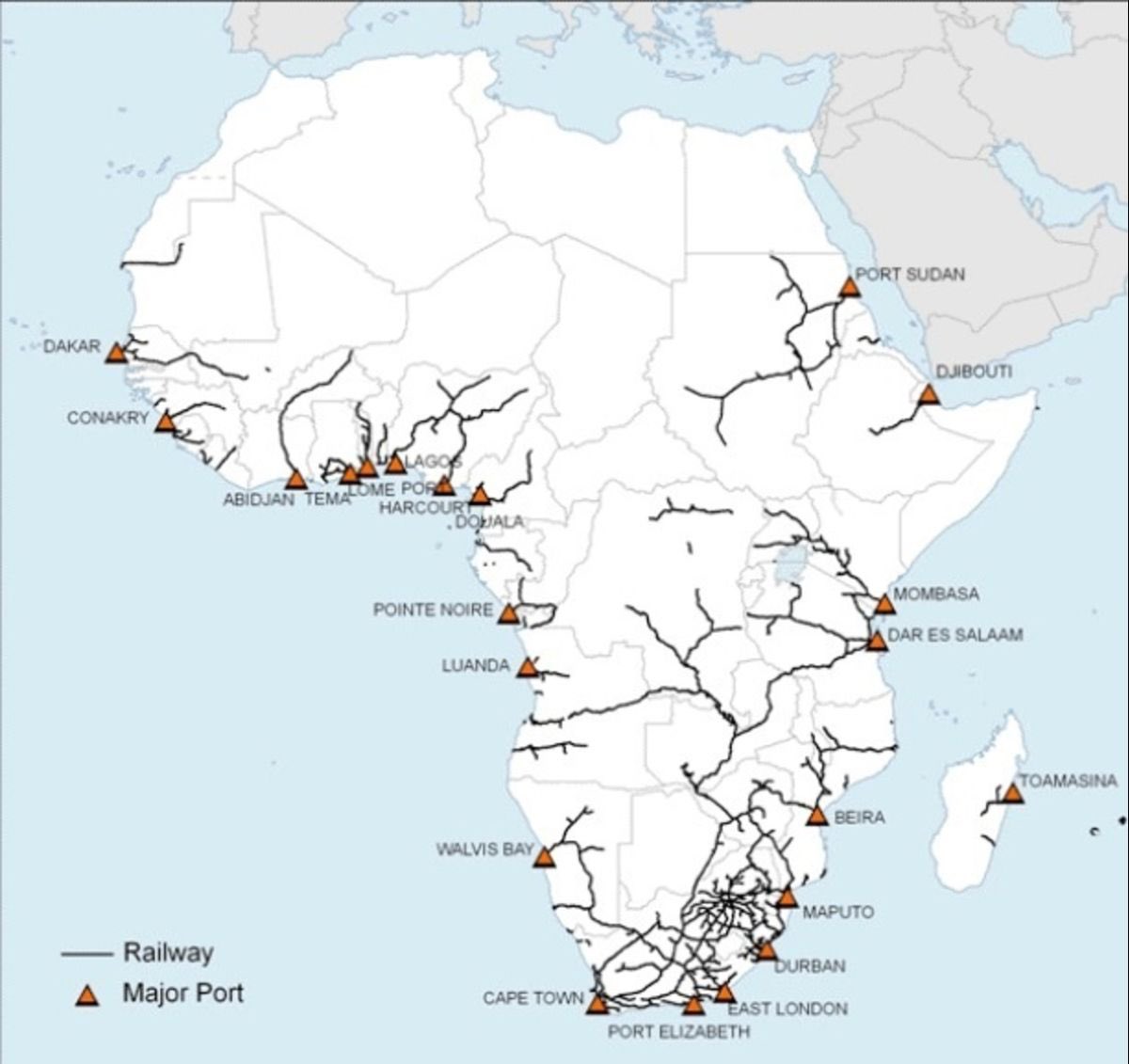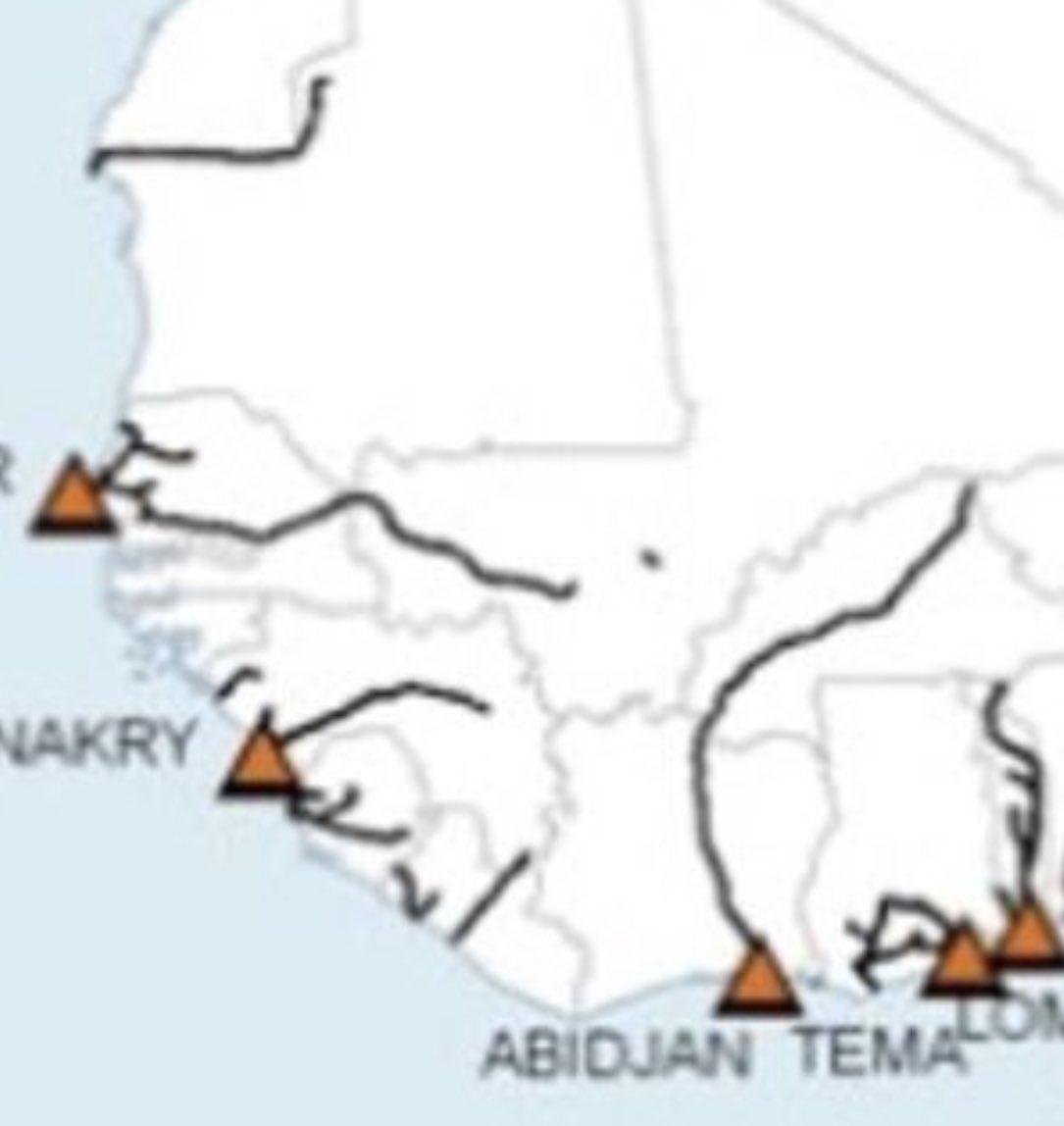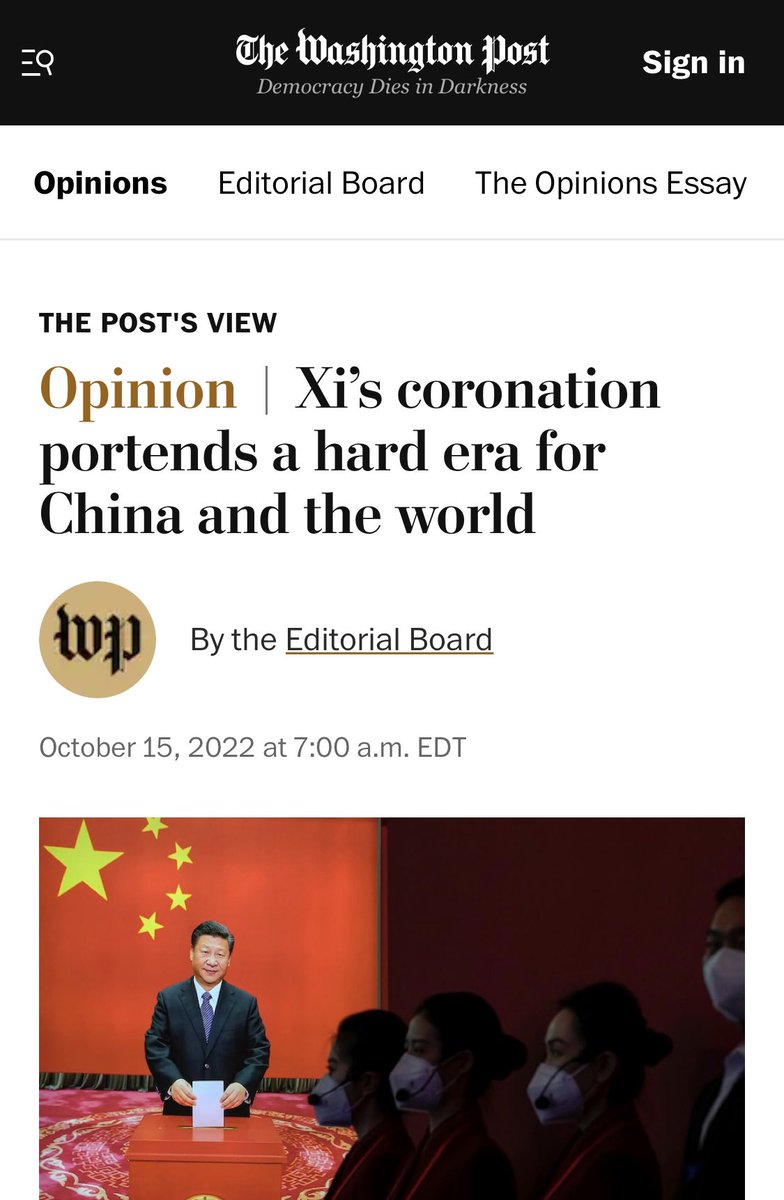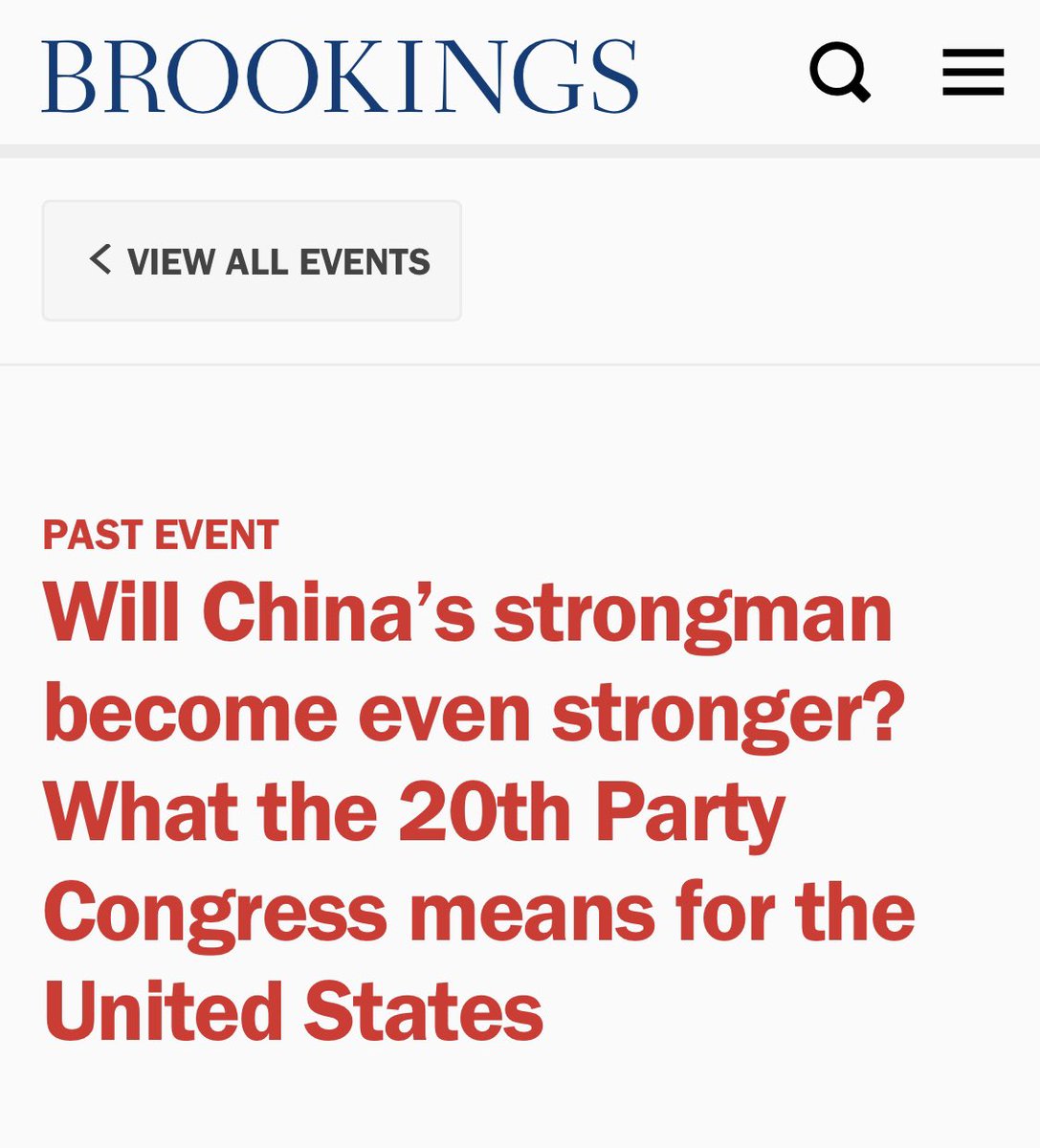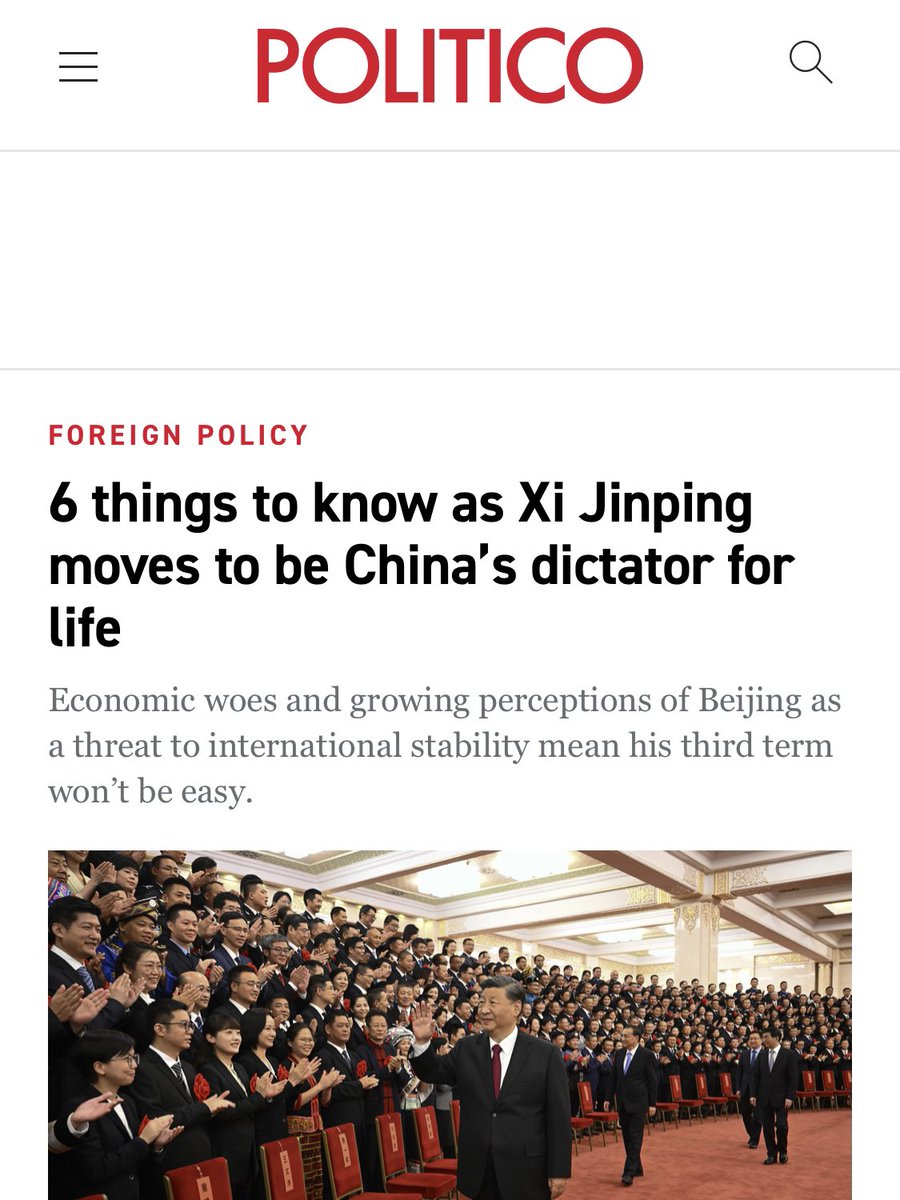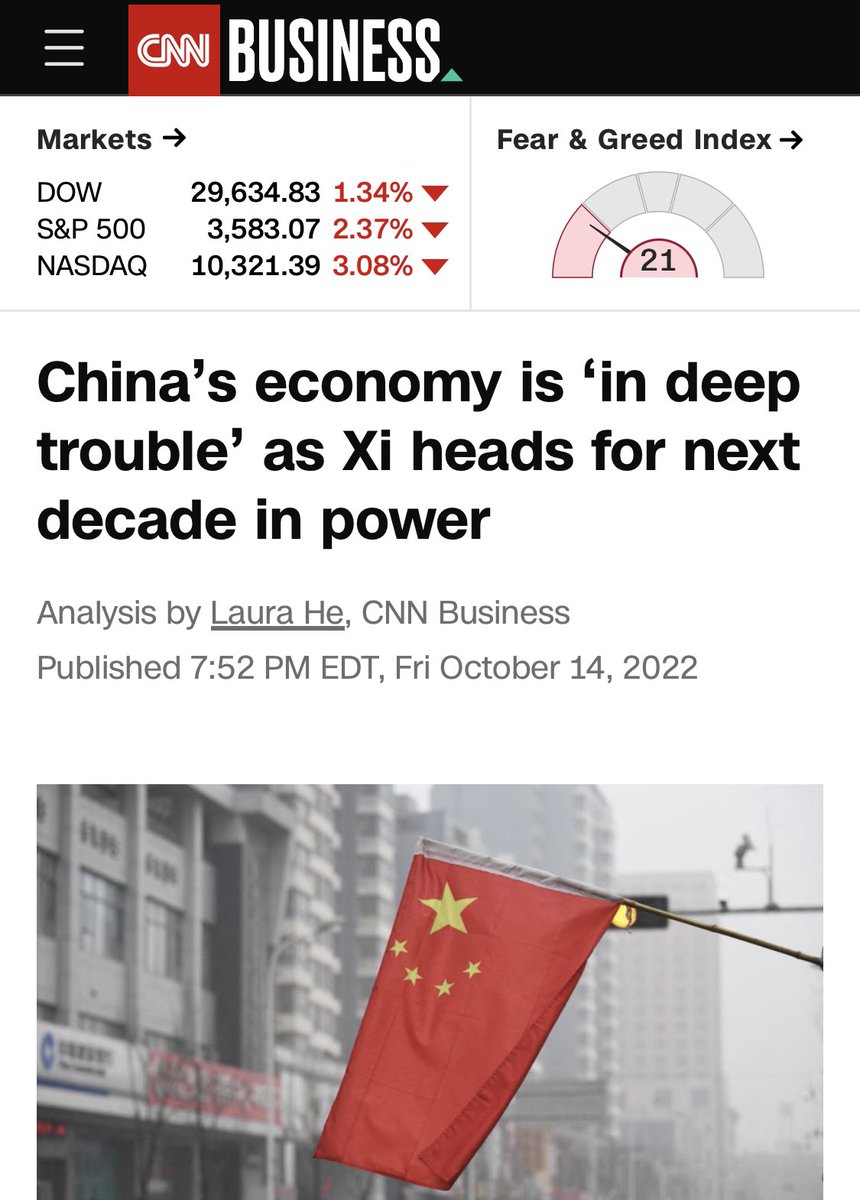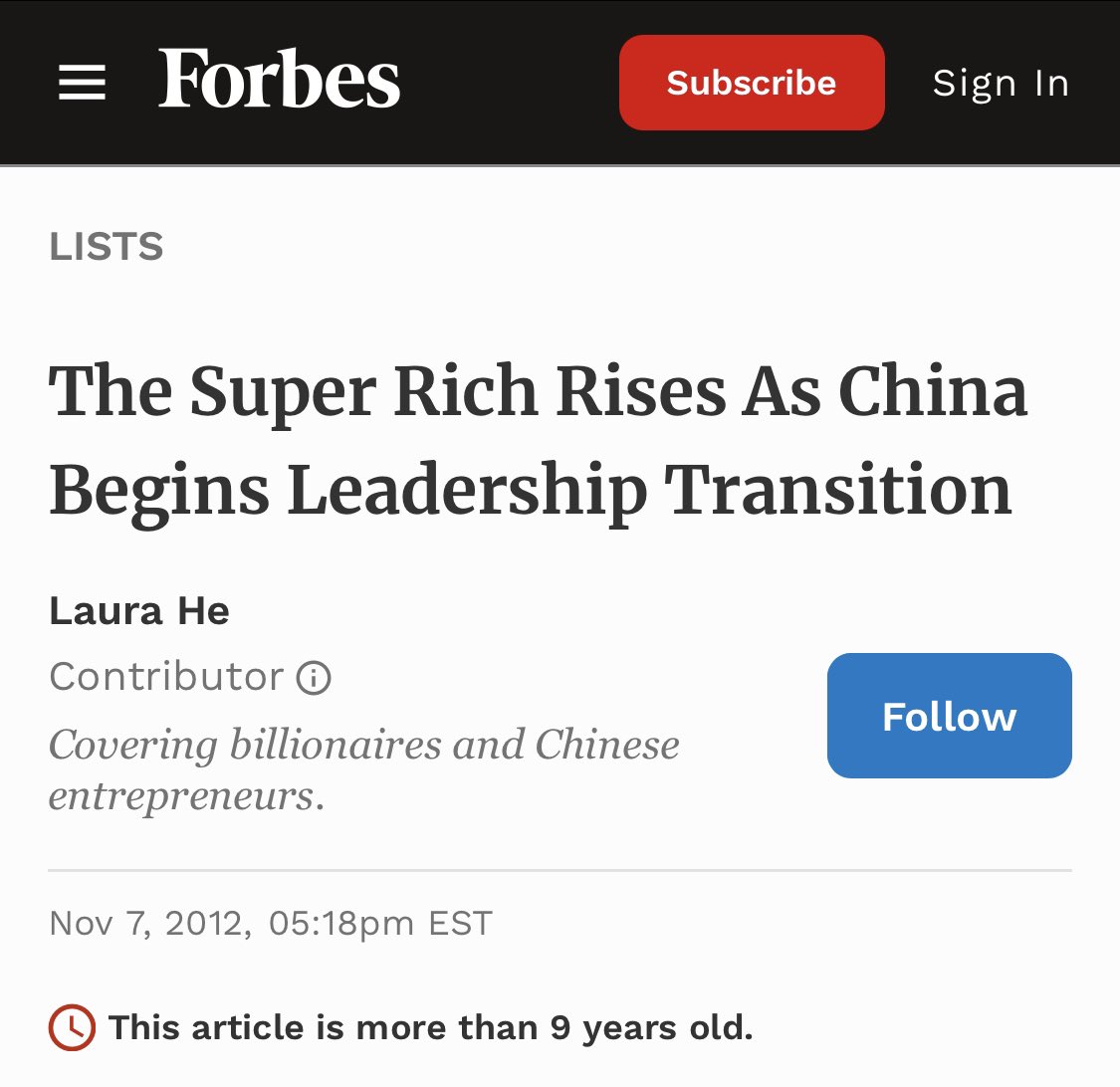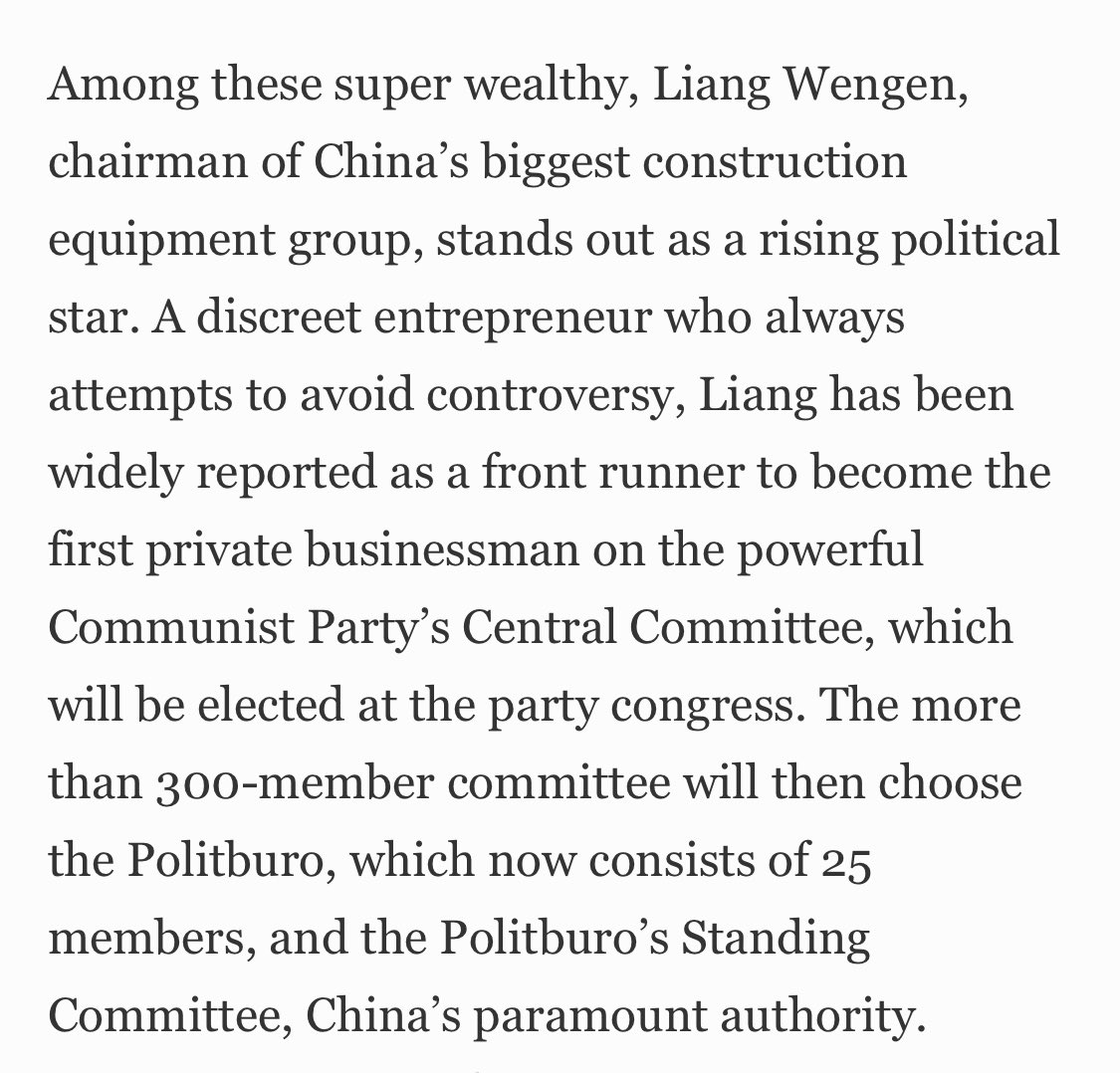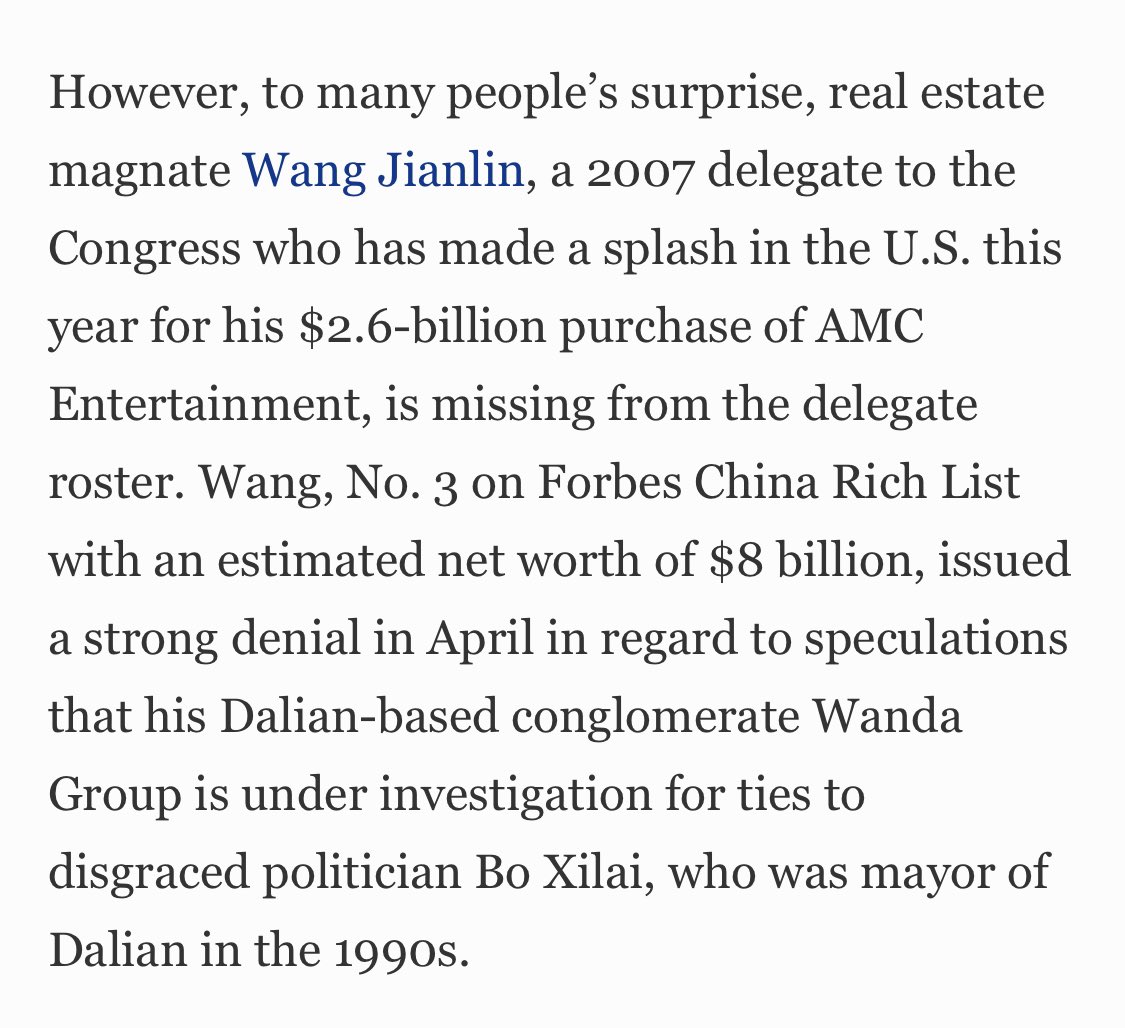
How China stopped a genocide that the United States and the United Kingdom caused
A thread 🧵
A thread 🧵
The UK colonized Sudan in the late 19th century, and structured its economy to produce one export commodity (cotton). It still primarily produced cotton and other cash crops (sesame, peanuts, &c.) after independence, until the end of the 20th century.
socsci.uci.edu/~vbernal/bio/B…

socsci.uci.edu/~vbernal/bio/B…

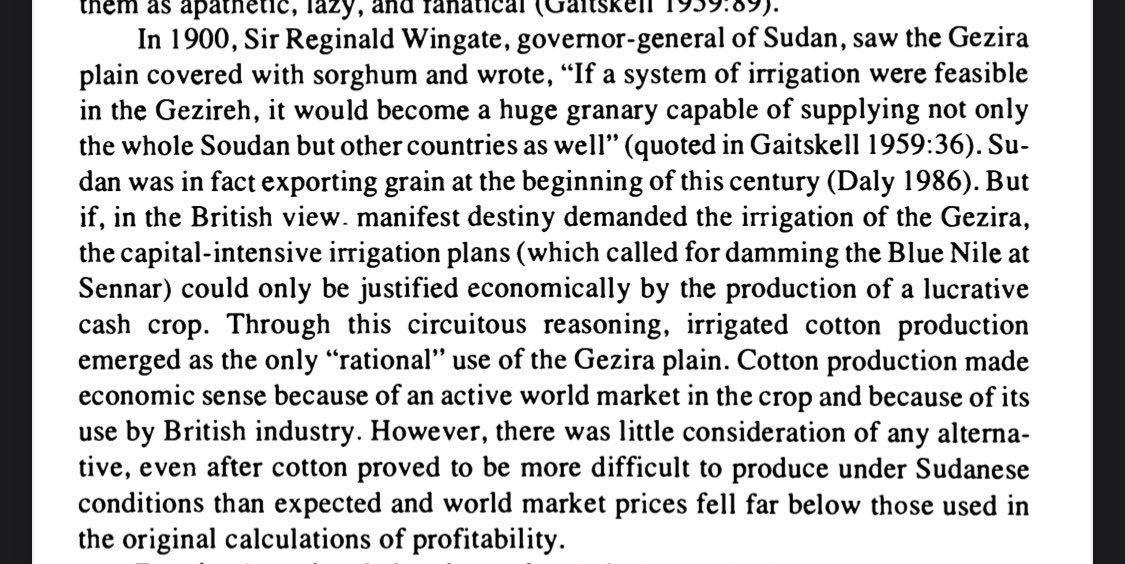
During the 1970s, a rare time of relative peace, the government of Sudan purged the Sudanese Communist Party and reached out to the west, which promised to help Sudan develop. Sudan took out large loans from western banks that western governments knew it would be unable to repay.
Ostensibly, the loans were for Sudan to develop its agriculture to produce a surplus of food. In reality, they caused starvation.
Sudan endured its first IMF structural adjustment program in 1978; land was seized from the peasants, often without compensation, and farmed unsustainably, leading to famine and a new civil war in 1983 


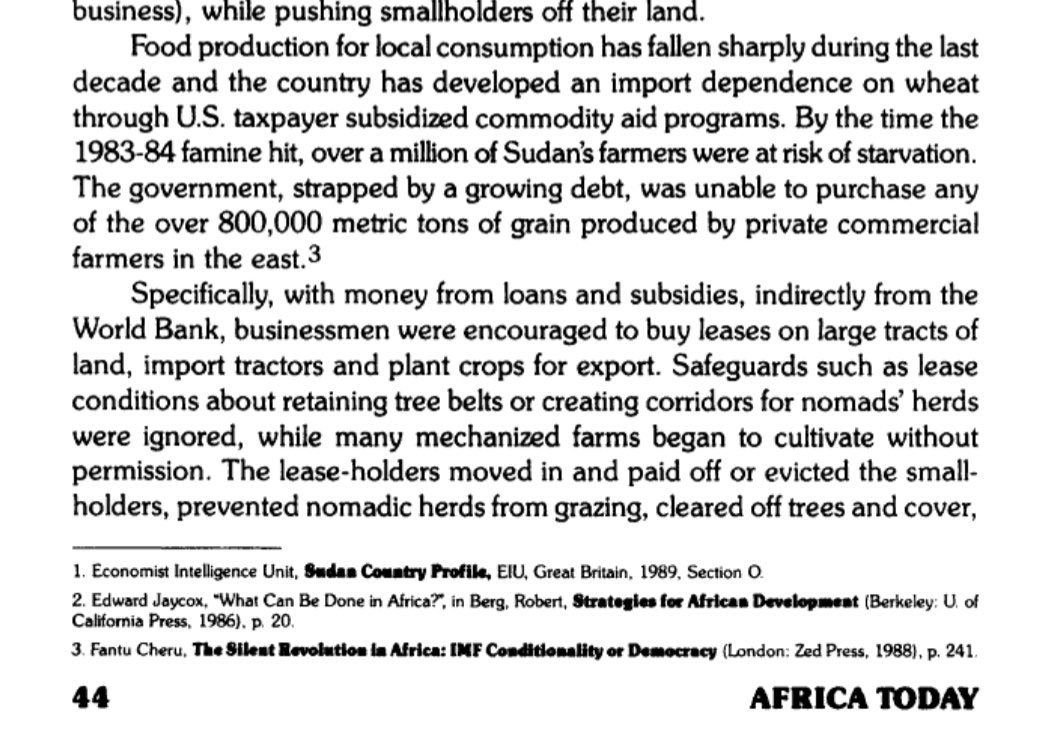
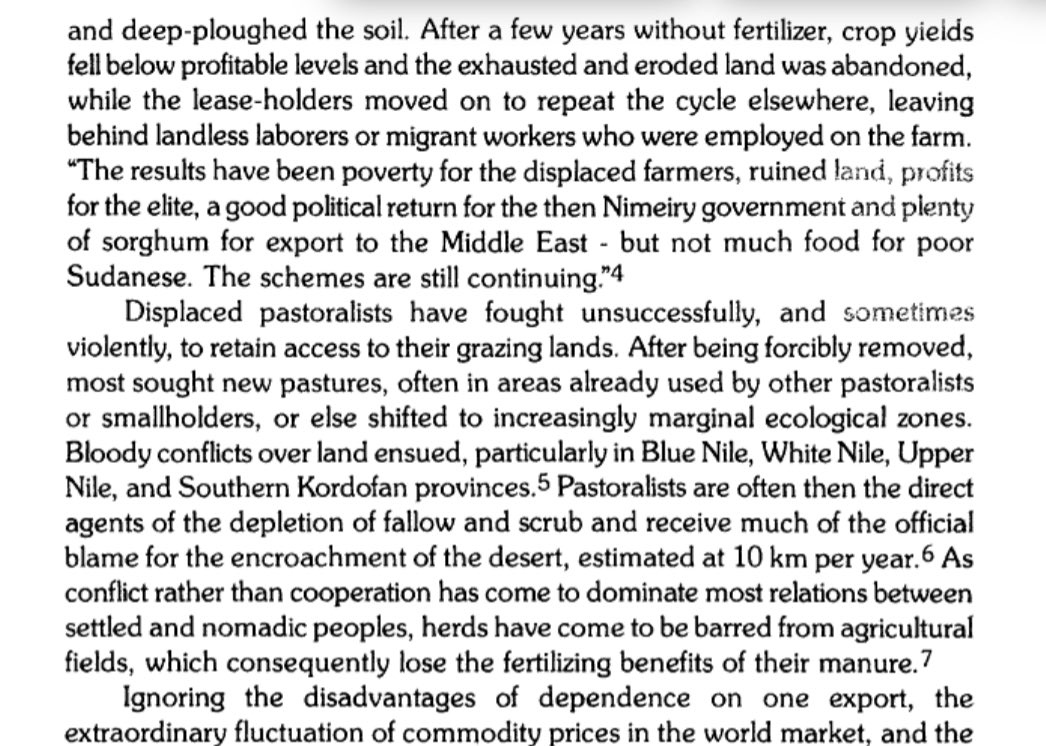
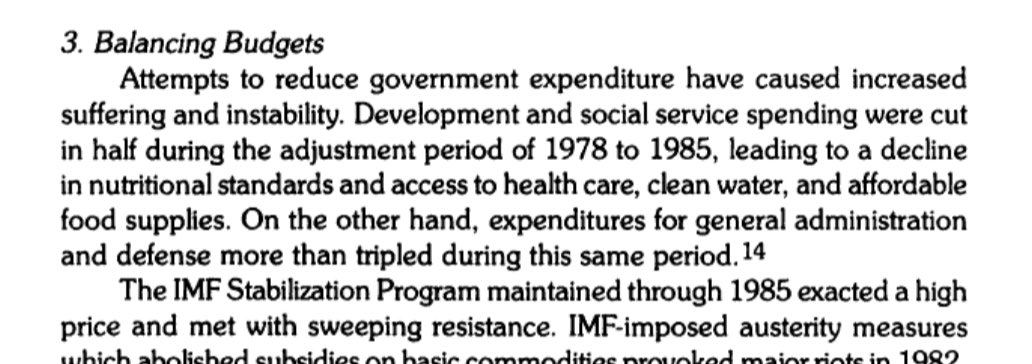
Structural adjustment thus “failed”. Western financial institutions' true goal in Sudan was to maintain its underdevelopment. After seven years of structural adjustment, the economy was in shambles, people were starving, and a civil war was raging.
jstor.org/stable/4186585

jstor.org/stable/4186585
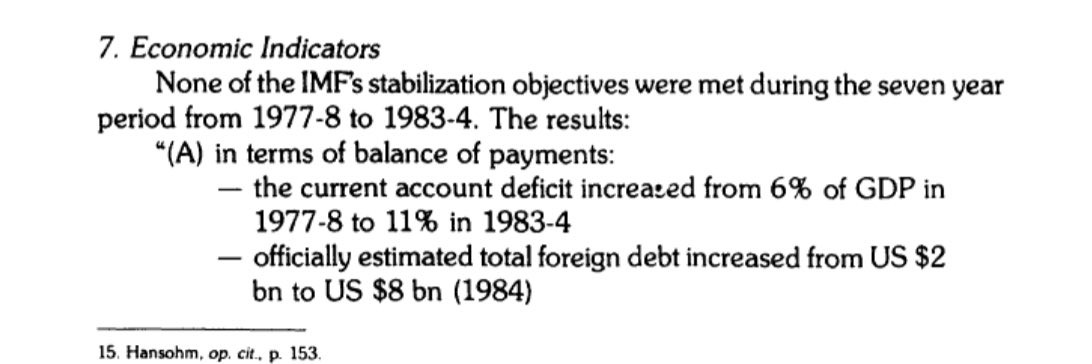
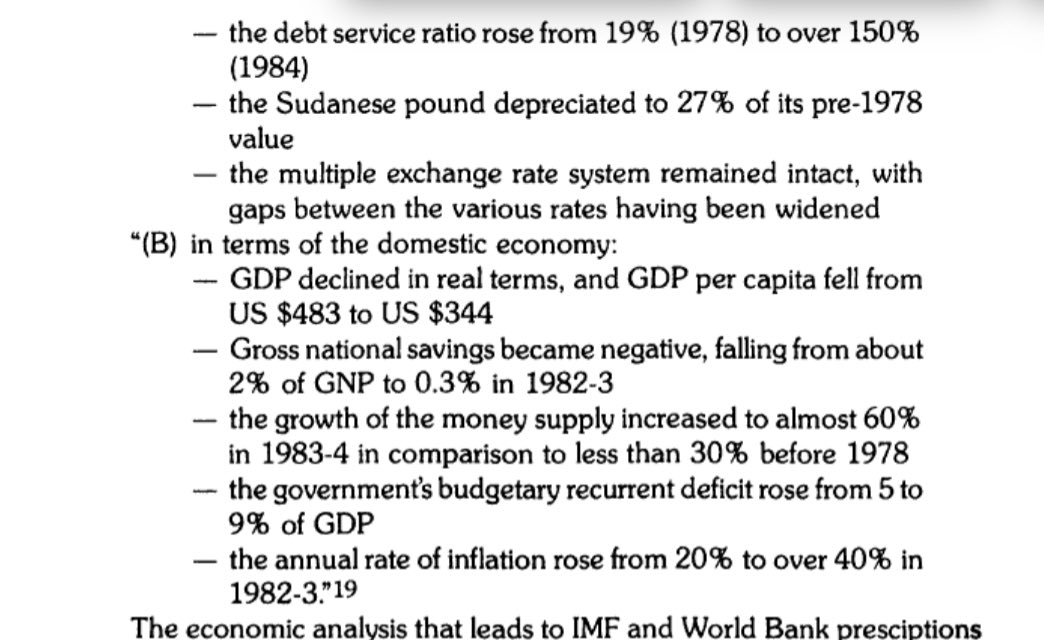
These conditions led to a military coup d’état in 1989, in which President Omar al-Bashir, who was infamous for his ties to Islamic fundamentalist groups, gained power. His government became heavily sanctioned by the west, perpetuating Sudan's underdevelopment even further.
In 1998, the US bombed the Al-Shifa pharmaceutical factory in Khartoum, destroying Sudan's capacity to produce medicine during a civil war, causing an unknown but no doubt large number of excess deaths.
(This isn't the genocide this 🧵 is about, but another, earlier war crime.)
(This isn't the genocide this 🧵 is about, but another, earlier war crime.)
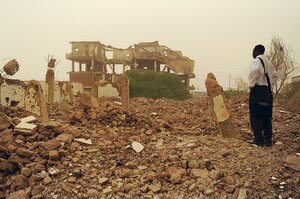
The US government falsely claimed that Al-Shifa produced chemical weapons for Al-Qaeda. It's possible President Clinton ordered the strike based on dubious intelligence to distract the media from his grand jury testimony regarding the Monica Lewinsky scandal earlier that week.
In 2003, the Sudanese govt and paramilitary groups began a campaign of collective punishment against rebels in the western Darfur region. The ICC charged that al-Bashir acted with "specific intent" to destroy the Fur, Masalit and Zaghawa ethnic groups.
icc-cpi.int/sites/default/…
icc-cpi.int/sites/default/…
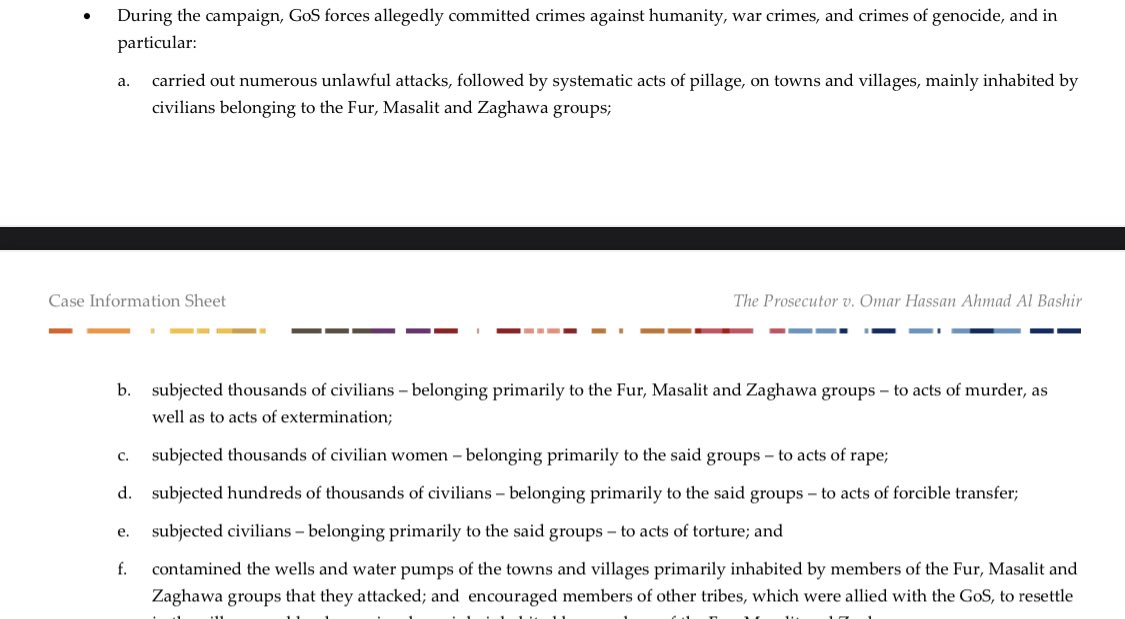
The western press widely publicized the genocide (typically omitting the World Bank and the IMF’s role), and the United States led the world in isolating Sudan through more aggressive sanctions.
The western press was later remarkably candid in admitting that the sanctions did absolutely nothing to stop the bloodshed. In 2018, Foreign Policy called the sanctions a “global face-saving exercise after evidence of war crimes in Darfur began to emerge"
foreignpolicy.com/2018/07/03/san…
foreignpolicy.com/2018/07/03/san…
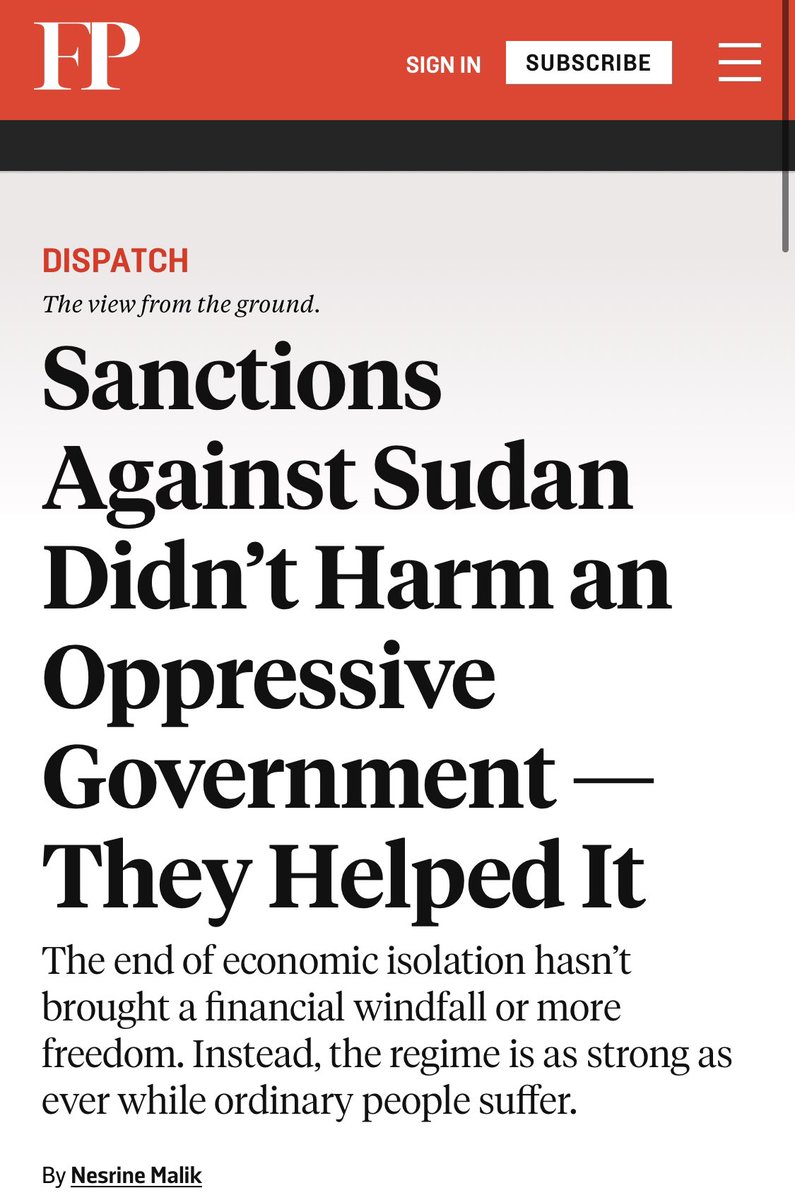
The sanctions brought tremendous suffering to the Sudanese poor instead. Their implementation was particularly cruel; in an earlier article, FP explained how they effectively prevented even basical medical supplies from reaching Sudan.
foreignpolicy.com/2016/01/14/sud…
foreignpolicy.com/2016/01/14/sud…
Despite western pressure, China did not participate in the sanctions, and continued to trade with Sudan. Instead, the PRC pursued a diplomatic solution. Once the killings in Darfur became known, the PRC devoted considerable efforts to negotiating a ceasefire.
The PRC helped mediate a peace agreement between the government and the southern rebels in 2005, helped fund an initial African Union peacekeeping force, and continued negotiating to stop the bloodshed in Darfur.
By 2007, talks were successful, and the Sudanese government agreed to allow UNAMID, the largest UN peacekeeping force in history, to intervene in Darfur. Without the PRC's efforts, this would not have happened.
briqjournal.com/en/chinas-part…
briqjournal.com/en/chinas-part…
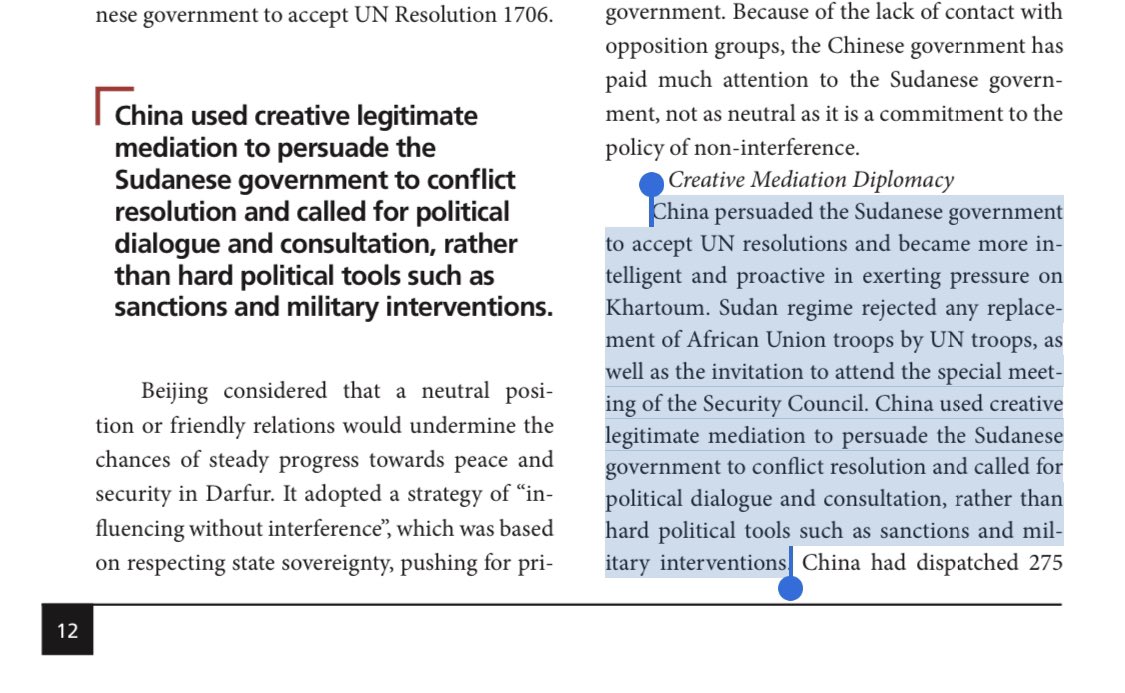
Instead of acknowledging China's role in stopping the violence, the western media spat in its face. In 2008, as UNAMID protected villages in Darfur from paramilitary forces, the west loudly accused China of complicity in genocide—a genocide ultimately caused by western finance.
The NYTimes, for example, ran a column titled "China's Genocide Olympics" referring to the 2008 Summer Olympics that were planned in Beijing. Steven Spielberg later withdrew as artistic advisor to the event, publicly condemning China-Sudan relations.
nytimes.com/2008/01/24/opi…
nytimes.com/2008/01/24/opi…
UNAMID was hardly 100% successful, but it likely saved hundreds of thousands of lives. Many more refugees fled Darfur during this time, but according to UN estimates, the cumulative death toll (around 300,000) did not greatly increase after intervention.
news.un.org/en/story/2019/…
news.un.org/en/story/2019/…
Multilateral peace agreements involving other countries in the region were signed; in 2018, the UN considered Darfur "increasingly stable", and UNAMID withdrew in 2020. Al-Bashir was deposed in a coup, and is currently imprisoned by the new government.
news.un.org/en/story/2018/…
news.un.org/en/story/2018/…
I don’t think it’s clear what will ultimately happen to him. The govt convicted him of other crimes, and agreed to give him to the ICC, but hasn't yet, and his health is reportedly poor. He might die before a trial over the Darfur charges is arranged.
bbc.com/news/world-afr…
bbc.com/news/world-afr…
This story doesn't have a particularly happy ending. Al-Bashir is out of power but Darfur is currently descending back into chaos, thanks in no small part, again, to western finance.
news.un.org/en/story/2021/…
news.un.org/en/story/2021/…
Sudan's total external debt in 2021 was staggering, and had only worsened with time. For example, though only a fraction (about $1 billion) was still owed to its former colonial overlord the UK, 80% of this debt was INTEREST on loans from the 20th century.
theguardian.com/world/2021/mar…
theguardian.com/world/2021/mar…
In June 2021, Sudan received a pledge of initial debt forgiveness from the IMF after finally being classified as a "Highly Indebted Poor Country". But to even be considered as a HIPC, the IMF requires that a country implement significant "macroeconomic reforms" first.
In Sudan's case, it was required to end fuel subsidies, devalue its currency, and normalize relations with Israel. Reuters reported that even before debt forgiveness was applied, the reforms had already caused food and transportation costs to surge.
reuters.com/world/africa/s…
reuters.com/world/africa/s…
Seeing some comments that I’m oversimplifying the civil war.
It’s true Sudan had and has a lot of internal contradictions that I didn’t mention. (Many, e.g. ethnic and religious rivalries, can be traced back to how the UK drew the postcolonial border.)
It’s true Sudan had and has a lot of internal contradictions that I didn’t mention. (Many, e.g. ethnic and religious rivalries, can be traced back to how the UK drew the postcolonial border.)
But it was NOT inevitable that these contradictions would result in violence. Only after poverty and hunger were inflicted from outside did the situation deteriorate into war.
There’s a pernicious belief that war and genocide in the neocolonial periphery are primarily a consequence of ethnic sectarianism. Under this view, multiculturalism is impossible, and different nations cannot live together in peace. I can’t agree with this perspective.
Ethnic conflict is a common EXPRESSION of contradictions in a society, but these contradictions are always rooted in the conditions of economic life and that society’s position within the global economy.
The western press and encyclopedias often disregard or obscure material causes, because it’s convenient for the ruling class for you to believe that they don’t exist or aren’t important. But they do and they are.
• • •
Missing some Tweet in this thread? You can try to
force a refresh







